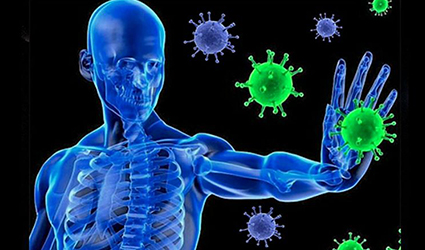Study Discovers New Mechanism of Immune System to Fight Disease
September 3, 2018
Source: MedicalXpress
 2,385
2,385

The disease-fighting capacity of the body depends on the proper functioning of its immune system. Hence, a new discovery revealing new insight into its functioning by University of Queensland (UQ) researchers could reveal new ways to treat diseases like cancer and autoimmune disorders.
A study headed by Kate Schroder, associate professor and Molecular Bioscience researcher at UQ, found a new mechanism by which the immune system fights bacteria. Their study was published in Science Immunology.
"Bacteria are often quickly killed by white blood cells called neutrophils, which are the body's initial line of defense against infection," Dr. Schroder said.
"We discovered an unexpected secondary line of defense that is deployed against bacteria that have evaded the initial immune response and invaded the neutrophil itself. This new immune defense pathway is mediated by an 'executioner' protein called Gasdermin D. This protein drives an unusual form of 'cellular suicide', where the cell expels structures called neutrophil extracellular traps (NETs) to catch the infection and prevent it from spreading."
A supplementary line of defence is offered by NETs which basically are a meshwork of DNA strands containing microbe destructing proteins that halt and destroy bacteria. A relation between NETs and neutrophil destruction was earlier known, however, these findings unearthed a new Gasdermin D and inflammasome (molecules that identify and control infections) based line of defence.
The pathology of certain autoimmune and inflammatory disorders like cancer could also be based on NETs, added to its microbe fighting function, said Dr. Schroder.
"It's important we understand the basic cellular mechanisms of inflammation before we develop treatments for various immune-related diseases," Dr. Schroder added. "Understanding how the Gasdermin D drives neutrophil death and the expulsion of NETs could lead to new therapeutic targets for immune-related diseases, which could in turn lead to more effective treatments and improve quality of life for affected individuals."
By DduRead more on
- Things to Know before Buying Newborn Baby Incubators March 31, 2022
- CRUK researchers develop new early-stage rectal cancer treatment December 12, 2020
- Individuals with infection history have higher risk of developing Sjögren’s syndrome April 12, 2019
- Highly Resistant Food Poisoning Bug Responds to Antibiotics September 6, 2018
- Smartphone Based Diagnosis to Identify Mosquitoes Transmitting Infection September 5, 2018
your submission has already been received.
OK
Subscribe
Please enter a valid Email address!
Submit
The most relevant industry news & insight will be sent to you every two weeks.



